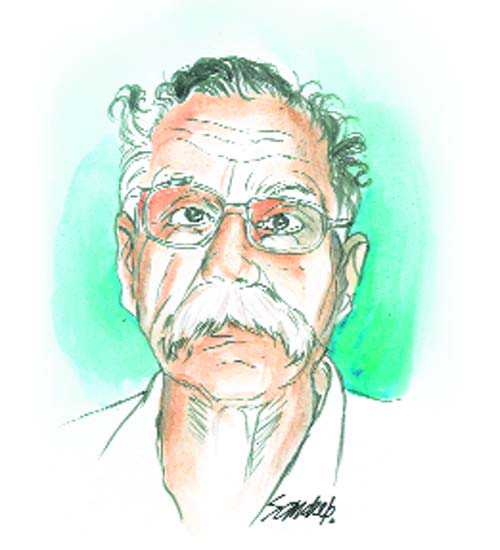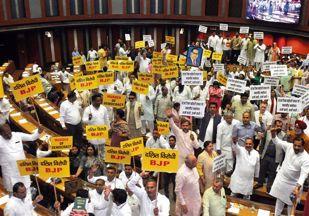
The winner of India’s highest literary honour, Jnanpith Award, recently, Bhalchandra Nemade crossed swords with Salman Rushdie a day after winning the award. He raised doubts about the literary merit of some works of Rushdie, the India-born writer. The 77-year-old Nemade stated that most of Rushdie’s works after “Midnight’s Children”, which won him the Booker Prize, did not have much literary value.
An angry Rushdie hit back at Nemade, saying “grumpy old man. Just take your prize and say thank you nicely. I doubt you’ve even read the work you attack”. Like Rushdie, Nemade, writer of the landmark 1963 Marathi novel Kosla, is no stranger to controversy. He propagates the contentious theory of deshivad (nativism) that rejects global influences in literature; asserting the value of native writers; indicating that Marathi literature ought to explore its indigenous sources; and advocating that English be banned from India’s educational institutions. Nemade antagonised his contemporaries by contending that as a genre, the short story was inferior to the novel.
He also sharply criticised another Indian-origin writer, VS Naipaul, for “pandering to the West” and dismissed his works as being of little significance. “Primary as well as secondary education should be in the mother tongue. What is so great about English? There isn’t a single epic in that language. We have 10 epics within the Mahabharata itself. Don’t make English compulsory; make its elimination compulsory”. Paradoxically, Nemade himself has been a teacher of English and comparative literature at various universities, including the School of Oriental and African Studies in London.
However, making a concession for English, he says, “It’s not that we shouldn’t learn English, we should. But we don’t need education in English. Let’s treat it like footwear. Keep it outside the house, to be used when needed outside the house.” While urging Indians to read works of Prem Chand and others, he denounced Naipaul and Rushdie. “When Naipaul came to India, he saw an area of darkness. Then he saw a wounded civilisation and blamed Islamic rulers for the wounds and not the British,” he commented.
Nemade’s first novel Kosla is a factious autobiographical novel of Pandurang Sangvikar, a youth from rural Maharashtra who studies at a college in Pune, but is loosely based on Nemade’s own life. Sangvikar, the narrator of Kosla, uses Marathi spoken in rural Maharashtra, and also reflects this world view. The book is a chronological autobiographical narration, yet it employs certain innovative techniques. Thus Sangvikar describes a year in his life in the form of a witty diary. As another technique, the narration describes “historical investigations” often undertaken by Sangvikar and his friend Suresh Bapat, that uncover to them the absurdity and tragedy of their personal condition. Kosla has been translated into various languages, including English, Hindi, Gujarati, Kannada, Assamese, Punjabi and Urdu.



























